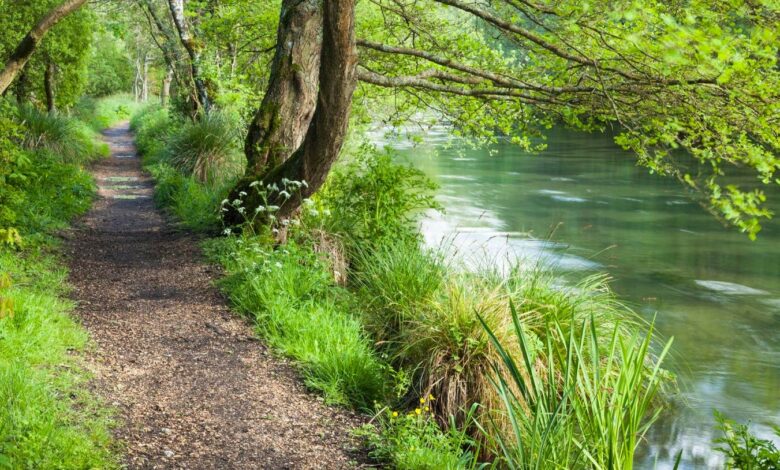Plastic Particles Found In Iconic U.K Chalk Stream River, Study Finds

📝 usncan Note: Plastic Particles Found In Iconic U.K Chalk Stream River, Study Finds
Disclaimer: This content has been prepared based on currently trending topics to increase your awareness.
Beside the River Itchen near Ovington. (Photo by: Loop Images/Universal Images Group via Getty Images)
Universal Images Group via Getty Images
Plastic and fiberglass particles have been found in the River Itchen, one of England’s premier chalk stream rivers, according to a new analysis.
The study by the University of Brighton and citizen scientists from the Upper Itchen Restoration Community Interest Company (UIR CIC) found particles in the river’s headwaters, raising urgent questions about the health of the waterway, which is also a popular spot for fly fishing.
Although particle size and colour varied, the results revealed persistent, catchment-wide contamination.
And it confirms even chalk streams, which are renowned for their biodiversity are being affected by particle pollution, adding a new concern to the existing pressures it faces, including water abstraction, and drought.
Microfibers, which are often shed from clothing, dominated the samples, while fiberglass was also present, together with particles from vehicle tyres.
Dr. Corina Ciocan, a principal lecturer at University of Brighton’s School of Applied Sciences said chalk streams like the Itchen are often compared to rainforests for their biodiversity, in a statement.
Dr. Ciocan added finding microfibres and even fibreglass fragments at every site they sampled is concerning.
“The next step is to identify the sources of this pollution and work with local partners to reduce it and mitigate the impacts.”
UIR CIC director Ian Diver said the River Itchen is one of England’s iconic chalk rivers with a special community of plants and animals, in a statement.
But Diver added the river’s ecosystem is declining and these early results show microparticle pollution is an issue “we cannot ignore”.
“There is currently no data on particle pollution in the Upper Itchen. This project changes that,” said Diver.
“By combining citizen science with rigorous analysis, we can fill a vital knowledge gap and empower landowners, conservationists and communities to protect this river for the future.”
The research is still ongoing and additional samples will be analysed throughout this year with the aim of tracing pollution sources, assessing potential impacts on wildlife, and exploring ways to reduce harm.
And as the research continues, the scientists plan to work closely with local stakeholders to pinpoint the sources of pollution and develop practical, evidence-based interventions.
The project is supported by Southern Water and by the National Lottery Heritage Fund through the Hampshire & Isle of Wight Wildlife Trust and Wessex Rivers Trust.
Libby Peake, the head of resources at Green Alliance said it was “sadly” not surprising to find microplastics contaminating rare habitats like the River Itchen, in an email.
Peake added sources of plastic pollution are everywhere, and most rivers in the U.K. are affected.
She said some of the most pernicious include untreated wastewater, which can be contaminated with synthetic clothing fibres and other particles, and runoff from roads, which carries tyre dust.
But Peake said this is a global problem, with microplastics found in the remotest corners of the world, including in Antarctic snow.
“Recent polling for Green Alliance showed that four out of five British believe throwaway culture is a big problem in the U.K,” she told me
“Despite the failure of the global talks for now, we can still make progress here in England, including through the circular economy strategy expected this autumn.”
In August, a separate study was published which claimed plastic waste make up two thirds of the rubbish found in rivers around the world.
The research by experts at the University of California, Santa Barbara, used on-the-ground data from Mexico, Jamaica, Panama, Ecuador, Kenya, Vietnam, Thailand and Indonesia.




